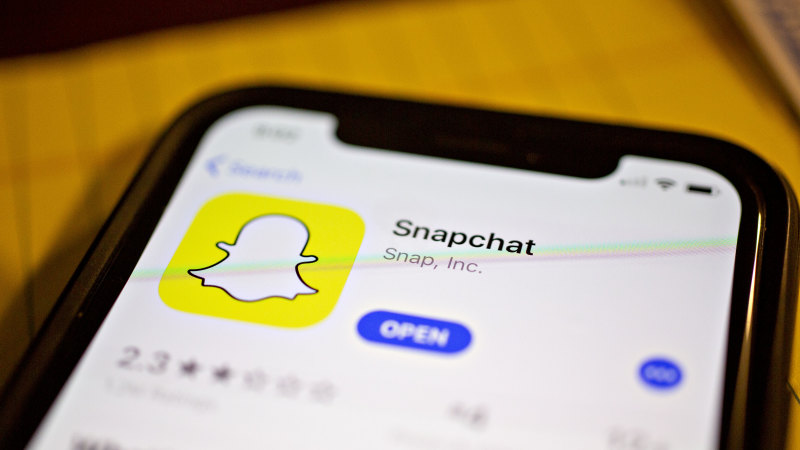Save articles for later
Add articles to your saved list and come back to them any time.
Snap Inc’s global chief executive, Evan Spiegel, insists his company’s premier app Snapchat is not losing its quirky distinctiveness even as it courts influencers with features resembling those of its rivals TikTok, Facebook and Instagram.
At a media conference overnight in California, Snap unveiled a host of new features designed to encourage more influencers to post on the platform in a move away from its origins a decade ago as a tool for friends to message each other. It also said it would make its AI chatbot, which has been a subscriber-only feature, available to all users.
Snap chief executive Evan Spiegel. Snapchat says it has 750 million monthly active users.Credit: Bloomberg
The announcements put it in a stronger position to pick up users from TikTok, which has been banned on government devices in Western countries including Australia and faces potentially being blocked outright in the US over national security concerns tied to its Chinese corporate ownership.
Figures released by Snap highlighted that in India, which blocked TikTok in 2020, time spent on the platform had soared 175 per cent between early 2021 when it launched its TikTok clone feature called Spotlight, and 2022. It did not provide the raw figures on which that percentage was based.
Spiegel said it was “hard to say” whether Snapchat’s growth in India was linked to TikTok’s absence and cast concerns in the West about TikTok – which TikTok has always said are groundless – as a recurrence of fears about foreign media ownership stretching back a century.
“I think there have always been concerns historically, in many, many countries for a very, very long time about foreign control of media,” Spiegel said. “That’s certainly been the case here in the United States with radio stations or television broadcasters, where there have been a lot of laws historically that have limited foreign ownership of broadcast content distribution.”
Snapchat started more than a decade ago as a service for individuals to send messages directly to their friends.Credit: Lionel Bonaventure
But he admitted those concerns had been charged by the enormous scale of social media platforms. Asked whether Snapchat was morphing into its rivals, Spiegel said: “I don’t think that’s fair at all actually, just given the way that that Snapshot is architected.
“A lot of what we’re highlighting are actually features that we pioneered to be different than [other] social media.”
Spiegel, who co-founded Snap in 2011, cited how Snapchat shows posts in a chronological order and deletes posts after a day unless a user opts to retain them, “so you can start the day fresh, there aren’t any public likes and comments”. He said that allowed users to be more relaxed and authentic.
Spiegel recently visited Australia with his wife, Miranda Kerr, but spoke to this masthead via video call from California before the company’s presentation.
Snapchat users aged over 18 will be allowed to make their self-deleting “stories” public. More creators with large followings and regular posting schedules will also be granted access to a revenue-sharing program where they will get an unspecified cut of the money generated by ads that users see interspersed in their posts.
The features move Snapchat, which claims 750 million users compared with about 2 billion for Instagram and 3 billion for Facebook, towards the model of most users consuming content from a smaller number of influencers and away from its origins more than a decade ago as a service for individuals to send messages directly to their friends.
It has since made quixotic bets on augmented reality, which it is still pursuing intently, and small camera drones, which it has given up on. But the moves have not impressed the market, with Snap’s share price trapped around $US10 ($15) for years, except for a surge during the coronavirus pandemic.
Spiegel would not comment on the company’s future financial prospects after lay-offs last year because of rules surrounding Snapchat’s coming earnings announcement.
The Business Briefing newsletter delivers major stories, exclusive coverage and expert opinion. Sign up to get it every weekday morning.
Most Viewed in Technology
From our partners
Source: Read Full Article


